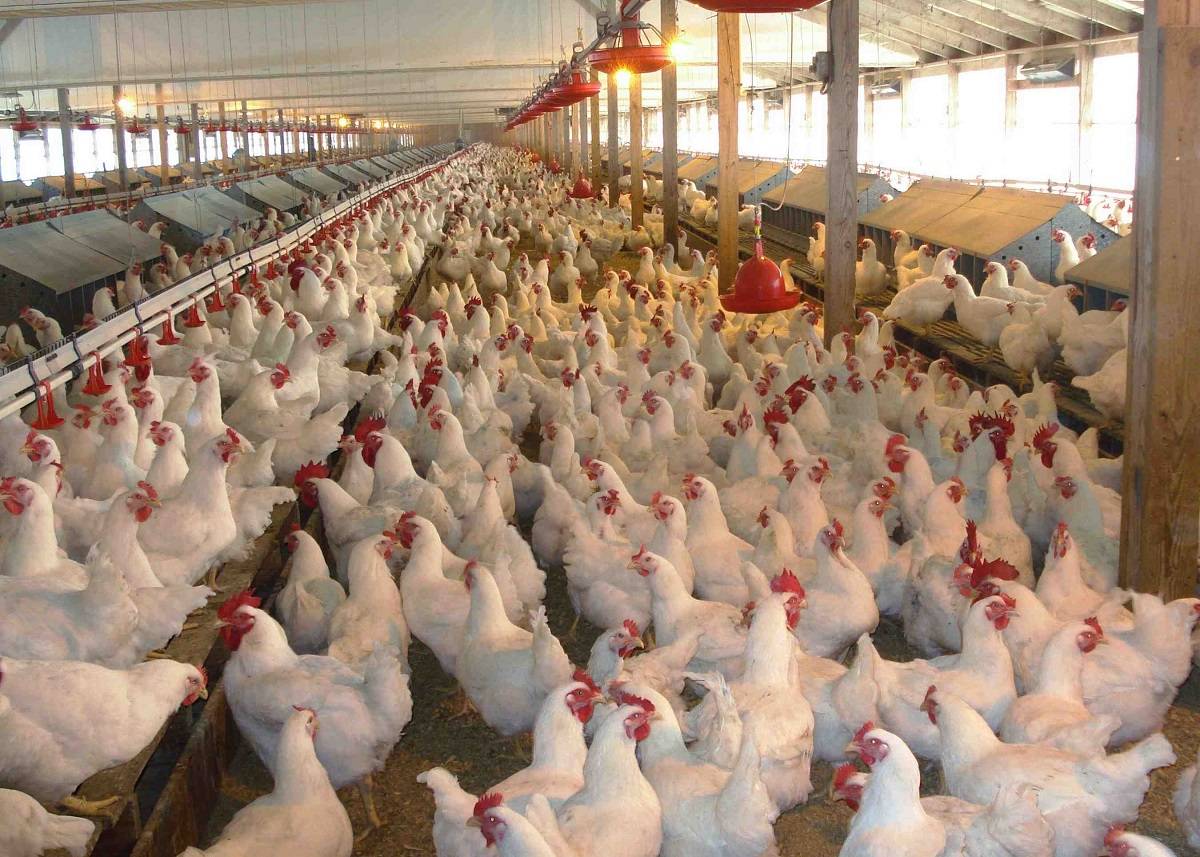
Many individuals start poultry farms with the intention of selling eggs as well as chicken meat in order to get profit. Unfortunately, research has shown that various farming methods frequently result in doing more harm than good to the chicken, which causes losses for the producers.
One such technique is the raising of an average of 30 chickens in dark, confined spaces known as "chicken coups." The majority of farmers view this as a space-saving strategy, particularly if they live in an urban location or on rented land. The modest space is frequently assumed to be sufficient for the brood, which grows every few weeks to the point that the farmer is forced to sell adult hens to make room for the hatchlings.
This frequently results in other difficulties as well, the majority of which the farmer is mostly unaware of. For instance, a little living space is bad for chicken breeding since it prevents them from producing as much as is necessary. There have also been instances where sickness has virtually wiped out the chicken population. Since their ways of raising chickens reduce productivity, this has led to the majority of farmers making the highest possible earnings.
Mistakes to Avoid in Poultry Farming
Here are 5 Top Mistakes that a farmer must avoid if he wants to thrive in the poultry farming industry.
Failing To See a Sick Bird in Time
Keeping an eye on your birds every day is crucial if you want to spot any sick or wounded birds in time to have them treated.
It's a good idea to observe your bird every day and become used to its typical behaviour. Your birds should all be alert, have good, bright eyes, healthy red or pink combs, and clean, glossy feathers that have been meticulously groomed.
Using Or Maintaining Toxic Chemicals in The Poultry House
The majority of chemicals, including rat poison, insecticides, and herbicides, are lethal to your birds. It is recommended to avoid utilizing such goods near your chicken coop or other areas where your birds can roam.
Spraying weeds or grass near your coop or anyplace else your birds go exposes them to the chemicals, which they can consume and absorb, resulting in disease or death for your birds. It is essential to use such pesticides around your flock sparingly and cautiously. Anyhow, this is applicable to farm birds that are allowed to roam freely.
Poor ventilation and hygiene in the poultry house
A lot of people make this error. Maintaining hens in filthy, inadequately ventilated, and dark coops can cause a variety of health concerns, including respiratory difficulties, mite/lice infestations, reduced egg production, and a number of other illnesses.
Bedding in chicken houses should be kept clean and changed frequently. Make sure there is ample airflow in your coop and that it is adequately aired. Lighting is also crucial. Keep your birds out of a dark, enclosed coop with no natural light. Use a dwarf wall technique and construct your chicken house facing east-west to accomplish this.
Using Subpar Poultry Feed
A rise in output occurs when your poultry birds are fed correctly with high-quality, balanced, unadulterated meals. The rapid development of birds, rise in egg output, and general health of the bird are evidence of this. If the bird is of the proper breed and in good condition, that is.
Making the mistake of failing to feed your birds properly (that is, failing to feed them on schedule with high-quality feeds) might result in a decrease in the growth and egg production, which will ultimately have an impact on your earnings and revenue from them.
Because making chicken feeds is expensive, some manufacturers have started adulterating feeds to increase profits. Your poultry birds will suffer severe consequences if you feed them contaminated feed. Take the time to obtain feeds from a reputable feed provider or firm if you decide to do so. To be confident of what you're feeding your birds, it's usually advisable to make your meals from scratch using the materials.
Putting Too Many Birds in a Little Space
Stress, cannibalism, feather plucking, and other problems can result from overcrowding. The amount of floor area needed by broilers varies based on factors including marketing age, housing systems, body weight at the time of marketing, and ambient (room) temperature.
A broiler chicken needs 450 square centimeters of a room when it is 18 days old, and 1000 square centimeters when it is 19–42 days old. Divide it by the quantity of poultry you wish to stock. Keep in mind that this is only an estimate; it is better to know what is best for your particular birds. Never forget that a "poultry house is too huge" is a myth. It's a good idea to build a larger poultry house from the beginning rather than replacing it after your flock grows. You could initially intend on obtaining 50 hens, but you might want to expand your company in the future.











